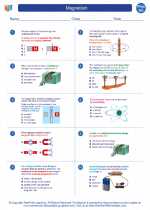Adrenal Medulla
The adrenal medulla is a part of the adrenal glands, which are located on top of the kidneys. It is responsible for the production and secretion of the hormones epinephrine (adrenaline) and norepinephrine (noradrenaline).
Function
The main function of the adrenal medulla is to help the body respond to stress. When the body perceives a stressful situation, the adrenal medulla releases epinephrine and norepinephrine into the bloodstream. These hormones trigger the body's "fight or flight" response, leading to increased heart rate, elevated blood pressure, and increased energy production.
Regulation
The release of epinephrine and norepinephrine from the adrenal medulla is controlled by the sympathetic nervous system. When the sympathetic nervous system is activated, it sends signals to the adrenal medulla to release these hormones, preparing the body for action in response to a perceived threat or stressor.
Study Guide
- What is the location of the adrenal medulla?
- What are the hormones produced by the adrenal medulla?
- What is the main function of the adrenal medulla?
- How does the sympathetic nervous system regulate the adrenal medulla?
Understanding the adrenal medulla is important in the study of endocrine and nervous system interactions, as well as in understanding the body's response to stress.
.


